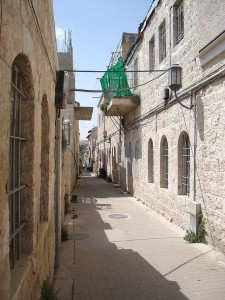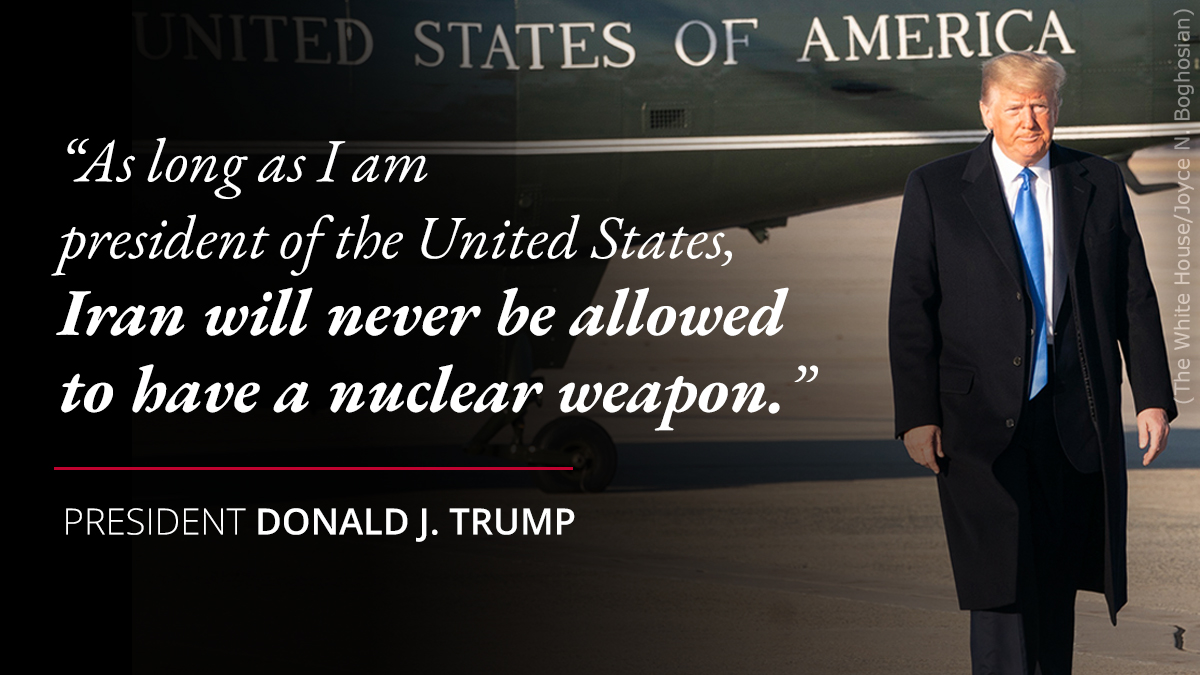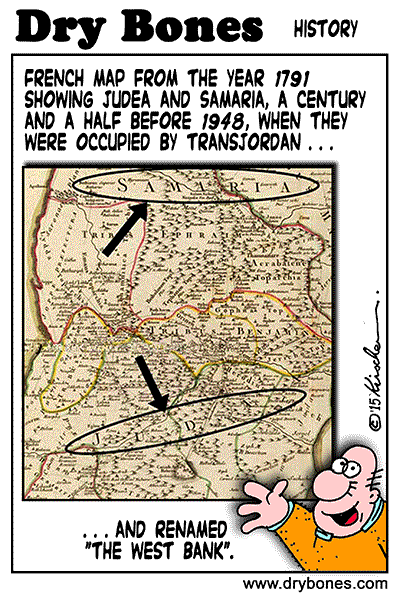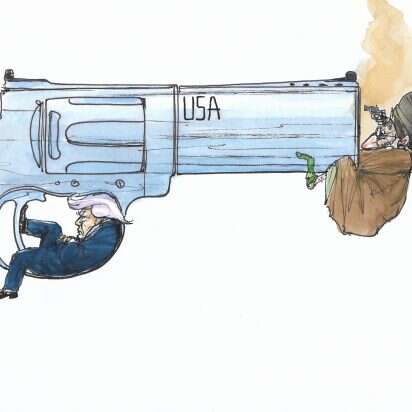The ICC and the Orwellian denial of Jewish presence in Israel
This leads to the question of determining who was the first occupant, and implying that historical Jewish presence must be denied and further that, as a corollary, Palestinians need to prove that they were the first occupants. The consequence of this narrative is that anything “Jewish” is erased from the history of the country. For example, recently, Palestinian academics denied archeological evidence of Jews in Israel, part of a narrative to portray Jews as recent “invaders.” More generally, this creates an impossible historical conundrum, since the presence of an Arab population emerged as a notable community in the territory of Israel after the Muslim conquests of the 7th century and that, thereafter, this population always cohabited with the remaining Jewish and Christian communities after those conquests.'Pompeo drove a stake into a vampire by discarding Hansell memo'
More specifically, the aspect of this broad narrative relating to the inherent illegality of Jewish presence in Judea and Samaria, implies a certain view of the history of the past century. One could even say that this narrative requires a sort of Orwellian rewriting of the past, to erase key moments that fit uneasily with such a narrative. Indeed, it requires a writing out the recognition of a Jewish right to self-determination that followed the 1917 Balfour Declaration. It ignores the conditions under which Judea and Samaria – as well as Gaza – were occupied respectively by Jordan and Egypt from 1947 to 1967. It ignores the circumstances of the 1967 Six Day War when Israel took control of this territory in a defensive war. It ignores the negotiated terms of the Oslo Agreements in relation to the distribution of authority in Judea and Samaria and the lack of final status of both borders and territories. The wide-sweeping argument of illegality per se also ignores the diverse nature of each individual presence in these territories, in terms of where it is, how it came into existence, what legal authority applies to it, etc.
As in a courtroom, the issue comes down to the identification of competing narratives before the international community acting as a Judge. Each side is therefore faced with the choice of which narrative from which to choose. Some narratives can be reconciled; others cannot. The fact remains that taking the position that settlements are illegal as such, serves a war-like narrative that denies any legitimacy to Jewish presence in the entire territory of Israel, as exemplified by numerous declarations, including a recent declaration by a Fatah official that “Palestinian people will not relinquish a grain of soil from the land of historical Palestine from the [Mediterranean] Sea to the [Jordan] River.”
The December 20, 2019, announcement by the ICC Prosecutor that she is ready to open a formal investigation regarding “settlement-related activities” at its core, will undoubtedly be seen as a first narrative victory for those challenging Jewish presence in Israel. This can only be countered if another narrative is presented – not just in public discourse – but at the ICC itself, which provides genuine procedural opportunities for participation in the judicial debate, as we noted in an editorial last September.
Besides the practical issue of the ICC, multiple lawyers and officials stressed the importance of US Secretary of State Mike Pompeo’s statement that the settlements are not inherently illegal.Historical 'Jewish presence' key to Israel's territorial claims, US envoy says
George Mason University law professor and Kohelet legal director Eugene Kontorovich said Pompeo had killed a 1978 US legal memorandum declaring the settlements illegal so completely that it was like driving a stake through the heart of a vampire and burying it deep in the ground.
He reviewed arguments that try to frame the settlements as illegal, saying they were exposed as political by the bizarre “scope of illegality” that they try to use as a tool against Israel.
Kontorovich noted that the Fourth Geneva Convention often cited as the basis for viewing the settlements as illegal is meant to apply only in a time of war, not for more than 50 years and to every house ever built in an area where no one was living but which happens to be generally disputed.
Likewise, former Foreign Ministry director-general and current Jerusalem Center for Public Affairs president Dore Gold said it was “obscene” that the Geneva Convention discussion of the Nazis’ forced deportation of Jews to death camps was now being used against Jews who wish to build homes in their ancestral homeland.
The settlements started as an Israeli security measure to prevent invasions, and UN Security Council Resolution 242 explicitly authorized Israel to remain in control of portions of the disputed West Bank land, Gold said.
US Ambassador to Israel David Friedman reiterated on Wednesday that the Trump administration did not consider Israeli settlements in Judea and Samaria as illegal per se, while also noting Israel's ancient ties to the land.David Singer: Israel’s Next Election Must Focus on Judea and Samaria – not Bibi
"Judea and Samaria – the name Judea says it all – is territory that historically had an important Jewish presence," Friedman said at a conference in Jerusalem organized by the Kohelet Policy Forum, a nonprofit organization dedicated to promoting Israel's sovereignty and strength as a Jewish democracy.
"As they say, it is the biblical heartland of Israel. It includes Hebron, where Abraham purchased a burial cave for his wife Sarah; Shiloh, where the tabernacle rested for 369 years before the Temple was built by King Solomon in Jerusalem; Beth El, where Jacob had his dream of the ladder ascending to heaven; Kasr al-Yahud, where Joshua led the Israelite nation into the Promised Land and John the Baptist baptized Jesus, and so many other famous locations.
"After the Ottoman Empire fell, Judea and Samaria, along with the rest of what was then referred to as Palestine, became subject to a British Trust which was subject to the Balfour Declaration, the terms of the San Remo Conference, and the League of Nations Mandate. In simple terms, the British were obliged to facilitate settlement of the Jewish people in this land. That's not to say that Jewish settlement was exclusive, that no one else had the right to live there. But Jews certainly did," he stressed, noting that during the 1967 Six-Day War Israel "recovers Judea and Samaria from Jordan" after it had been under Jordanian occupation for 19 years, after "almost no one recognized its [Jordan's] rights to the territory."
Should another election deadlock occur for the third time in twelve months – the proposals presented by the respective parties for Judea and Samaria can be the basis for negotiations to form a Government of National Unity.
There will be critics who claim that Israel should not reveal its cards before negotiations actually begin with Arab interlocutors – that by doing so Israel will stymie itself from demanding more of Judea and Samaria.
All proposals should therefore include a rider that the area proposed is the minimum area of Judea and Samaria willing to be accepted in future negotiations and may be increased should changed circumstances to those now prevailing exist when negotiations are undertaken.
Political parties not prepared to inform voters of their proposals can expect to be given the thumbs down by the Israeli electorate. Those who are open and frank in presenting their proposals should find themselves rewarded by the electorate.
Politicians need to resist the temptation to focus their major attention on preventing Bibi – Israel’s longest serving Prime Minister – from becoming Israel’s next Prime Minister as he personally grapples with three indictments laid against him by Attorney General Mandelblit.
Israel’s national interest must incontrovertibly prevail.
Crunch time for Judea and Samaria has arrived – 100 years after reconstitution of the Jewish National Home in Palestine was first proposed internationally at the 1920 San Remo Conference.
Realising that 100 year old dream should be Israel’s paramount objective.



























